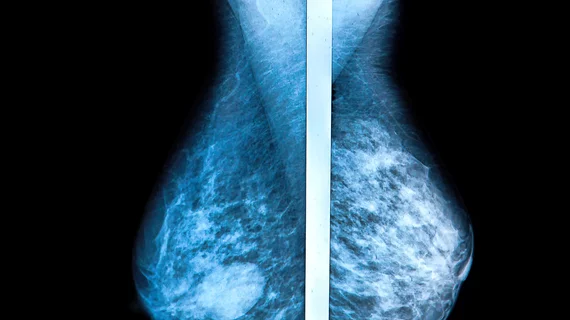Annual mammography screenings find cancer in patients at a less advanced stage than those who have a mammogram every two years, according to a new study presented at the annual meeting of the Radiological Society of North America.
The study underscores the importance of detecting breast cancer––which is among the top causes of death from cancer among women––in its earliest stages, when it can be treated more effectively. Mammography is commonly accepted at the best screening tool to detect breast cancer, but there is some disagreement over the recommended frequency of the screenings.
Those disagreements led researchers from Michigan Medicine to determine if women should be tested annually or biennially. Researchers analyzed a group of 232 women between the ages of 40 and 84. They were all diagnosed with breast cancer, with 200, or 86%, who underwent annual mammograms and 32 who underwent biennial screening. Across both groups, about 5% of the cancers were invasive.
Researchers found annual screenings had significant advantages. The group with the annual screenings had fewer cases of late-stage cancers compared to the biennial group––24% compared to 43.8%. Biennial screenings were also associated with a bigger tumor size.
"Screening mammography performed once a year resulted in less advanced stage disease in patients diagnosed with breast cancer," said study co-author Sarah Moorman, MD, of the Department of Radiology at Michigan Medicine in Ann Arbor, Michigan.
In addition, the biennial group saw more interval cancers, which are cancers found between screenings. Among the biennial group, more than one-third of women had interval cancers, compared to 10.5% among the annual screening group. Further, women had more aggressive treatment, such as chemotherapy and dissection of the axillary lymph nodes, when they underwent biennial screenings.
"There were trends toward less frequent axillary lymph node dissection and less frequent use of chemotherapy with annual screening compared with biennial screening," Moorman said.
The findings could help settle the debate about the recommended frequency of mammograms for women to detect breast cancer earlier. Currently, the National Comprehensive Cancer Network recommends annual screenings beginning at age 40 for women at risk, while the U.S. Preventive Services Task Force recommends biennial screenings for women of the same age and risk.

